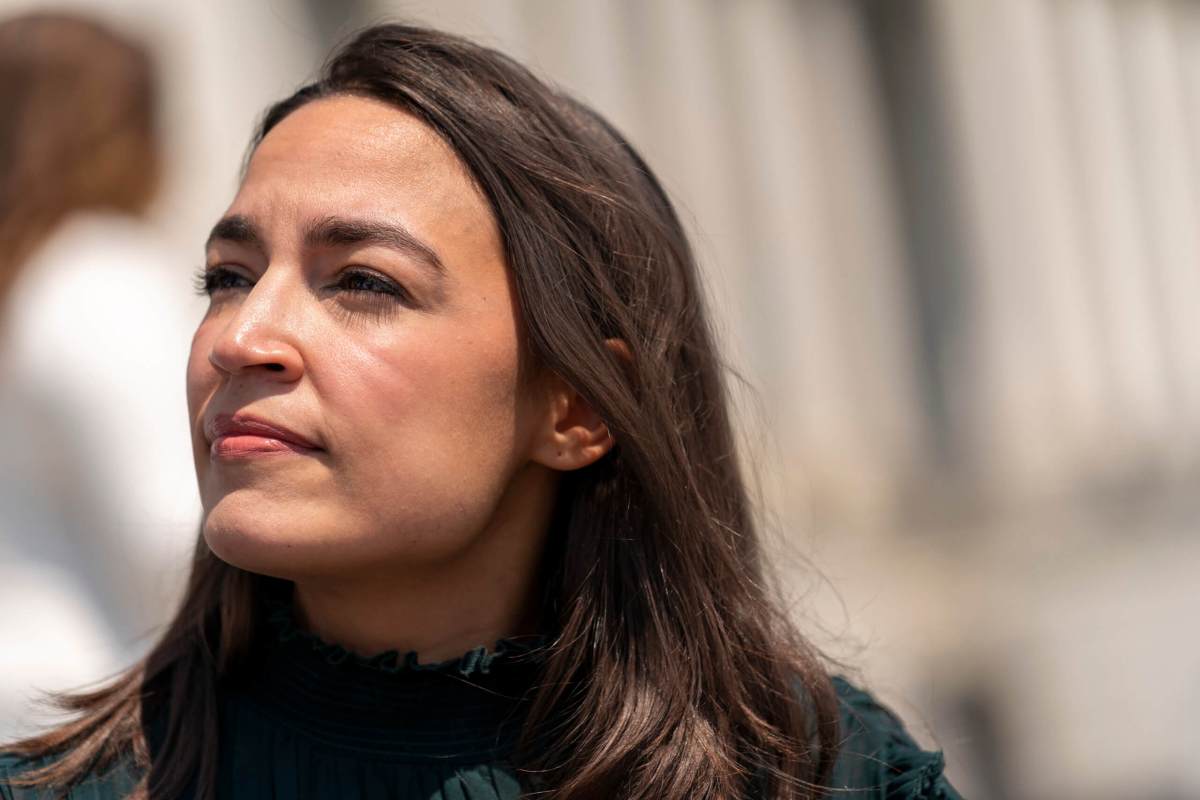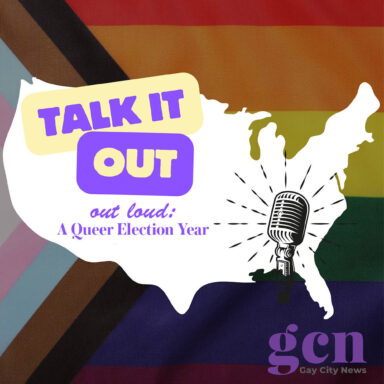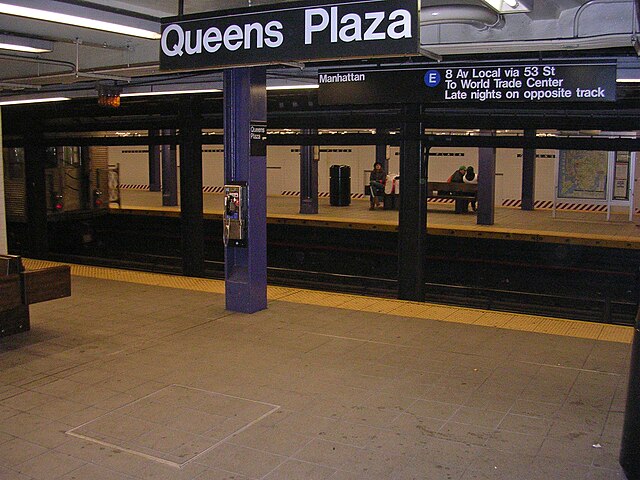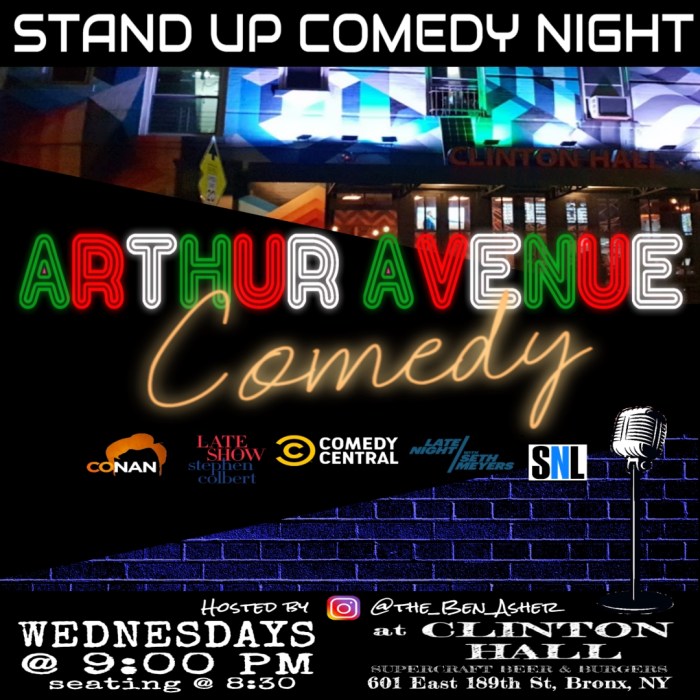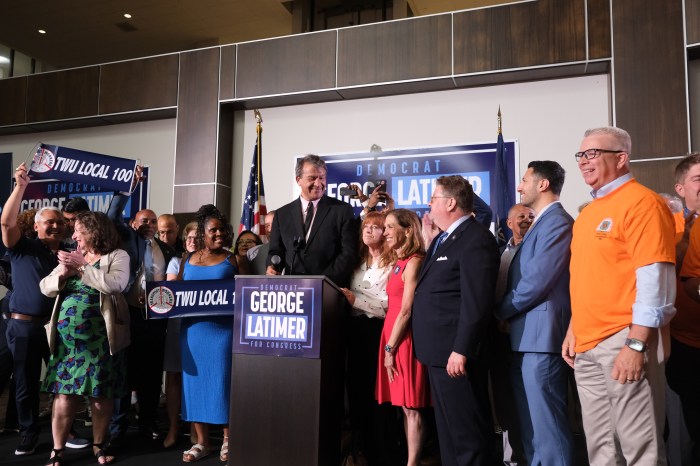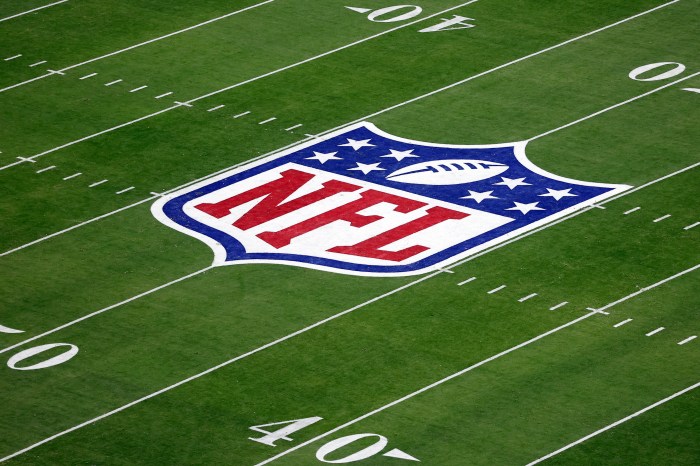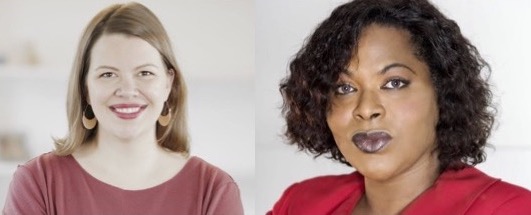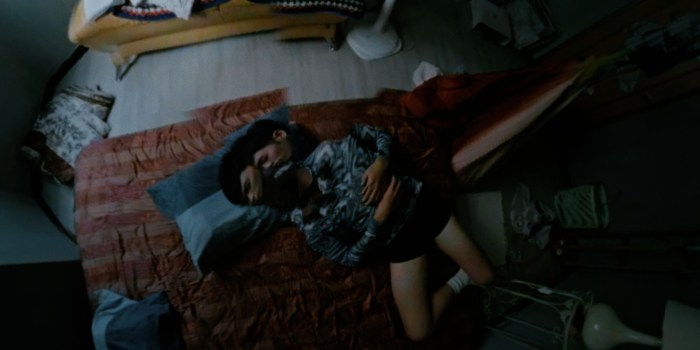U.S. Rep. Alexandria Ocasio-Cortez, who represents parts of Queens and the South Bronx, hosted a June 10 livestreamed conversation on antisemitism and its undermining effects on American democracy.
According to Ocasio-Cortez, while Jewish people are the target of religious and racial prejudice, they are also the subject of a longstanding conspiracy theory that unfairly blames them for societal problems and undermines Americans’ trust in government.
New York City is home to about 1.4 million Jewish people, according to a 2023 study by the UJA-Federation of New York. Jews make up about 7% of the state population, compared to about 2% of the overall U.S. population.
The Oct. 7, 2023 attack on Israel by the Islamic militant group Hamas was the deadliest day for Jewish people since the Holocaust. But antisemitic hate crimes have been on the rise in the city since before that day.
Schools Chancellor David Banks testified before Congress on May 8 about “unacceptable incidents” of antisemitism — as well as anti-Muslim prejudice — in city schools, which have resulted in 30 student suspensions and 12 staff members disciplined, he said.
The conversation hosted by Ocasio-Cortez was held amid record-high numbers of reported antisemitic acts throughout the state, which rose 110% in 2023, according to an Anti-Defamation League report released in April. The report said about 14% of the country’s antisemitic incidents occurred in New York.
And although people may disagree — even vehemently — about the current war in Palestine and the role of the United States in it, people must quickly intervene when criticism of the Israeli government crosses the line into antisemitism, Ocasio-Cortez said.
“When the Jewish community is threatened, the progressive movement is undermined,” she said.
For the 40-minute livestreamed discussion, Ocasio-Cortez brought in Amy Spitalnick, CEO of the Jewish Council for Public Affairs. Spitalnick was key in bringing a lawsuit against white supremacists who held a violent demonstration in Charlottesville, Virginia, in 2017.
Also joining the conversation was Stacy Burdett, former top official at the Anti-Defamation League and former government and relations director for the United States Holocaust Memorial Museum.
Ocasio-Cortez pointed out that she, Spitalnick and Burdett actually disagree on some aspects of the war in Gaza — but they stand united in shutting down those whose anti-Israel speech or actions go too far.
Antisemitism is rampant even on the political left, Ocasio-Cortez said — and acknowledging antisemitism “does not take away from fights for liberation, it actually advances them.”
“Defending and standing for the rights of Palestinians is not antisemitic,” said Ocasio-Cortez.
Cycle of violence
Burdett said that antisemitism requires people to “adjust some of our thinking” because it “doesn’t fit neatly into how we think about racial injustice.”
Jewish people in the U.S. are commonly thought of as white Americans, a demographic that is not often seen on the political left as oppressed. But the view of Jewish people as society’s “ultimate insiders” who have infiltrated every aspect of government and media is a longstanding antisemitic conspiracy that has become normalized on the right, said Burdett.
Spitalnick said antisemitism shows up even in progressive spaces. During protests in support of Palestinian rights, “the line [has been] repeatedly crossed in recent months,” she said.
Spitalnick said that synagogues across the country have been targeted for threats and vandalism because of the actions of the Israeli government — and her own synagogue was one of them.
A cycle of violence is the inevitable result of antisemitism, which “undercuts democratic norms, values and the rule of law,” said Spitalnick.
“If our communities are pit against one another … it makes all of us unsafe,” she said.
Burdett said that such divisiveness is intentional — “a goal of the bad actors.”
“People threatened by change thrive on dividing us,” she said. But having reasonable discussions about the war in Gaza is challenging, to put it mildly. “We don’t have a common language for this conflict.”
‘Lean in more deeply’
Ocasio-Cortez concluded with a message of support and unity. Although she is not Jewish, she vowed to call out antisemitism when she encounters it — and implored listeners to do the same.
“I am a woman of color. You are a Jewish woman,” said Ocasio-Cortez. “Our destinies are bound up, our protection is bound up in one another and it’s so important that we stand up and defend each other.”
Spitalnick said that being an ally to the Jewish community “means recognizing the very real pain and grief” caused by antisemitism— even among those who disagree with the Israeli government’s conduct.
She said people need to follow the example of the livestreamed discussion and “lean in more deeply” to difficult conversations.
“We cannot protect anyone or our democracy without confronting antisemitism head on,” Spitalnick said.
Reach Emily Swanson at eswanson@schnepsmedia.com or (646) 717-0015. For more coverage, follow us on Twitter, Facebook and Instagram @bronxtimes

